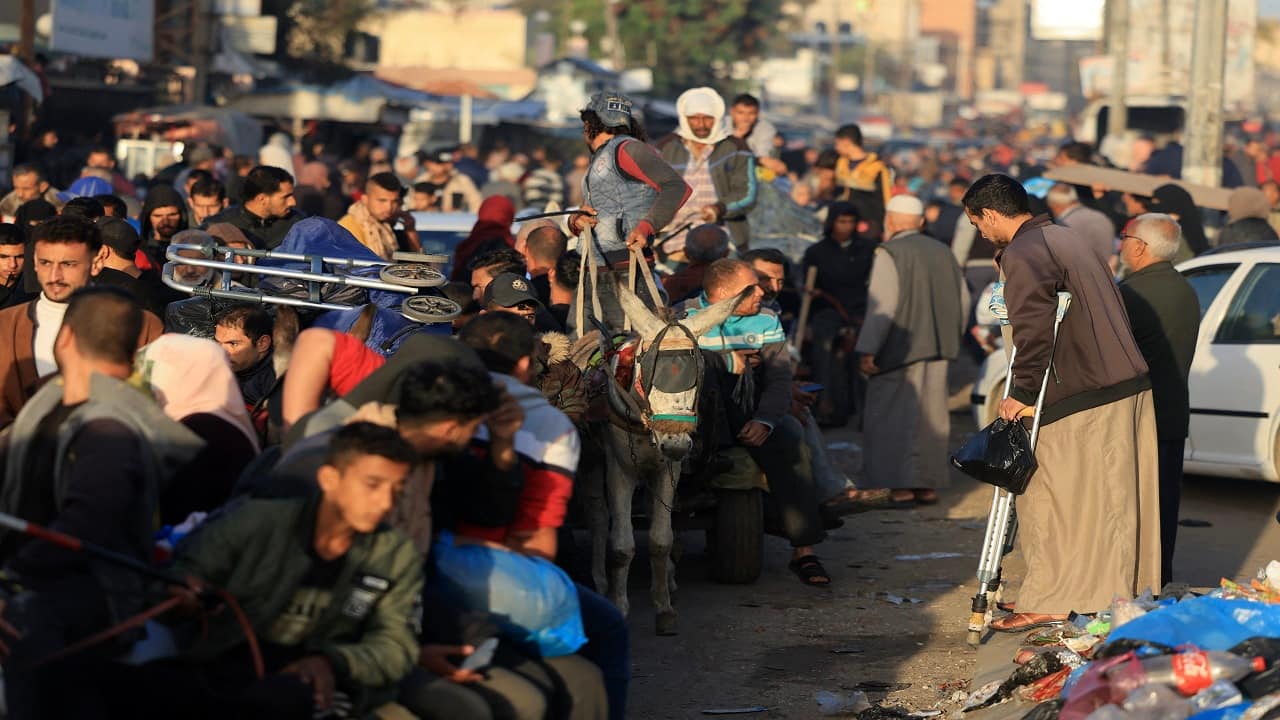 |
|
The recent Gaza ceasefire agreement, reached after 96 hours of intense negotiations in Qatar, marks a significant turning point in the protracted conflict between Israel and Hamas. The deal, brokered by diplomats from the United States, Egypt, and Qatar, involved a complex exchange of hostages held by Hamas for Palestinian prisoners held by Israel. The successful conclusion of these talks highlights the crucial role of international diplomacy in resolving even the most deeply entrenched conflicts. However, the fragility of the agreement and the underlying tensions necessitate sustained efforts to build lasting peace in the region.
A key factor contributing to the breakthrough was the involvement of high-level officials from various countries. The United States played a central role, with President Joe Biden's Middle East envoy, Brett McGurk, leading the US delegation. His presence, combined with the participation of President-elect Donald Trump's incoming Middle East envoy, Steve Witkoff, indicated a bipartisan commitment to resolving the crisis. The involvement of Witkoff, particularly, is notable given the context of then President-elect Trump's declared warnings regarding severe repercussions should the hostages not be released before his inauguration. This element adds a layer of political pressure that proved instrumental in expediting the negotiations.
Egypt's involvement was also crucial, given its long-standing relationship with both Israel and Hamas. Egyptian diplomats possess extensive experience in mediating conflicts in the region and leveraged their understanding of regional dynamics and relationships with relevant actors to facilitate the discussions. Qatar, as the host country, provided a neutral and secure environment for the talks, offering a platform conducive to meaningful dialogue between the parties involved. This tripartite mediation effort demonstrated the effectiveness of cooperative diplomacy in addressing complex geopolitical challenges.
One of the most significant obstacles during the negotiations was Hamas's initial reluctance to publicly disclose the number of hostages it held or the identities of those to be released in the first phase. This opacity presented a major challenge to building trust and establishing a framework for the exchange. However, Hamas eventually agreed to provide a list of hostages at the end of December, which allowed the negotiations to enter their final and most intensive stage. The breakthrough on the hostage list marked a pivotal moment, paving the way for an agreement to proceed.
The ceasefire negotiations were also influenced by the November truce between Israel and Lebanon's Hezbollah group. This previous agreement fostered a degree of regional de-escalation, creating a more conducive environment for negotiations between Israel and Hamas. The success in that instance potentially served as a catalyst, encouraging further diplomatic efforts and increasing the confidence of parties involved that compromise and resolution were achievable. The 96-hour period preceding the formal agreement saw intense and continuous talks, focusing on the intricate details of the prisoner exchange process. The complexity of the arrangement underscored the delicate balancing act required to ensure mutual compliance and minimize future escalations.
Looking ahead, the lasting success of the Gaza ceasefire hinges on several crucial factors. First, sustained commitment from all parties is essential. Any resurgence of violence or violation of the terms of the agreement could jeopardize the fragile truce. Second, further efforts towards addressing the root causes of the conflict, such as addressing economic conditions in Gaza and resolving fundamental issues relating to the Palestinian-Israeli conflict, are indispensable for establishing durable peace. Third, continued international engagement and support for ongoing diplomatic efforts will be vital in bolstering the ceasefire and preventing future escalations. The agreement is a step, but a potentially significant one, on a long road to resolution. The success of this ceasefire will be measured not only by its immediate impact, but by its ability to contribute to a lasting peace process.
Source: Three countries, 96 hours and numerous lives: How top diplomats finally cracked Gaza ceasefire deal
